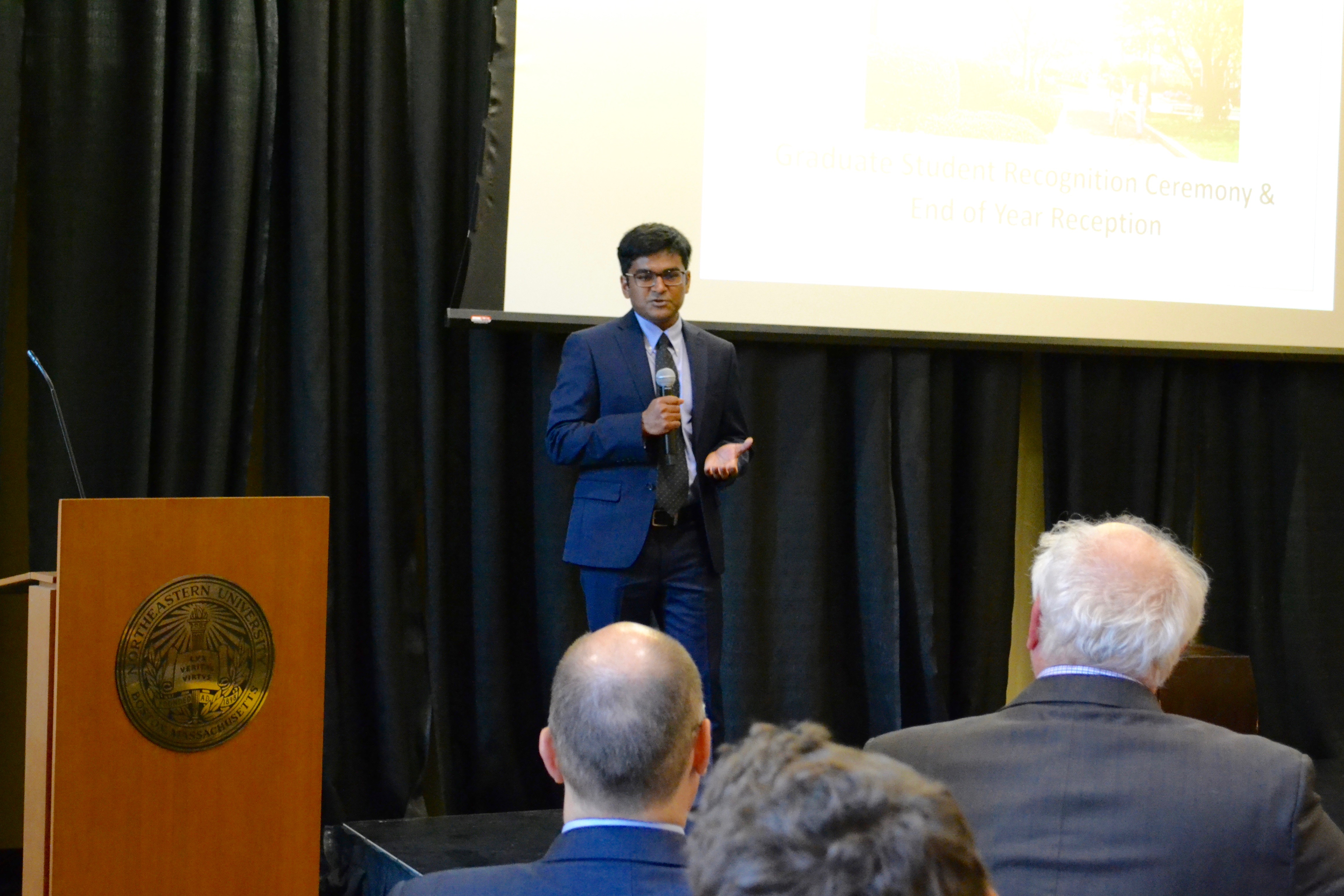Hasnain Hafiz has had a busy few months. He successfully defended his physics PhD, accepted a postdoctoral offer from Carnegie Mellon University in Pittsburgh, and received the Northeastern University College of Science’s prestigious Dean’s Award for Graduate Student Excellence in Research.
“[The award] gave me the boost to work better in the future,” Hafiz said. “I can now safely say that whatever I had done at Northeastern had some impact.”
What he has done at Northeastern is, in one word, energy. For six years, Hafiz has worked under University Distinguished Physics Professor Arun Bansil, exploring functional energy materials, or materials that could be used in conducting energy like in batteries. He said he chose this field because he wanted to do something tangible, rather than theoretical.
“I was more interested to do something that has immediate application,” Hafiz said. “Physicists — we like to do quantum mechanics, we like to solve problems. These are like solving problems in the applicable level. You can really see that impacting our society and our technology.”
One example he gave was Tesla’s new line of electric vehicles that power themselves on lithium ion batteries. Although the technology has made leaps and bounds since its invention, there’s still a long way to go. Slow charging times and short driving distances mean the cars aren’t widely accessible right now.
“When you use gasoline in a car, you go to a gas pump, you can get the whole tank in five minutes,” Hafiz said. “But when you charge these cars, you probably have to wait four hours. It’s not quite practical yet.”
It’s this research that Hafiz highlighted when he was nominated by Bansil for Northeastern’s award. They are exploring what new materials, such as lithium, could be used to increase the power of a battery. This could mean faster charging and longer distances for cars. It could also mean more durable phone and laptop batteries, too.
Beyond the lab, Hafiz has been a prolific writer and researcher at Northeastern since he began attending in 2010. He received his master’s degree in 2012, and soon after began his Ph.D. Since then, he has produced 13 peer-reviewed articles for publication and collaborated with multiple national laboratories in California and New Mexico.
Now, he’s leaving Boston for Pittsburgh, with a postdoctoral opportunity at Carnegie Mellon. He said he’s excited to take what he’s learned through his eight years at Northeastern with him as he continues his research.
“This is how science works — you do something and then you realize that this has an application in some other field,” Hafiz said. “Every single day, in every single project I realize that what I did previously probably has some application in the next project.”

